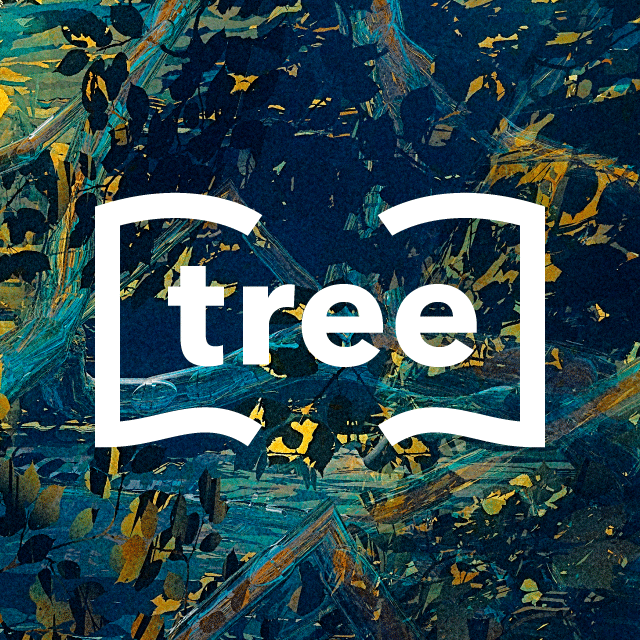18 July, Shōgo Imamura
文字数 5,882文字
Ogres Take Arms
“Your royal redness!”
Goldenrod¬—the Red King's retainer—rushed breathlessly into the cavernous throne room. True to his name, Goldenrod was easily recognizable by his bright yellow skin. Or rather, he was bestowed his name precisely because of his golden complexion. You see, the members of our tribe are born in a vibrant array of colors. Consequently, in our culture, we are traditionally given names that reflect our skin tone. Given our distinctive appearance, outsiders have long discriminated against our tribe, and even gone so far as to refer to us by the ignorant epithet “ogres.”
“Goldenrod, what say ye?”
The red king leaned forward intently from where he sat perched, cross-legged on the dais.
“The report was true. . . . We’ve spotted their boat. They will make landfall shortly.”
For the past two days, the kingdom had been abuzz with a bit of troubling news:
The “Isle of the Ogres,” of course, was how outsiders insisted on referring to our fair shores, although we locals simply called our home “The Island.”
We had all heard the rumors surrounding the curious circumstances of Momotarō’s birth, and how the wunderkind was supposedly pulled from a giant peach that came floating down a river one fateful day. Although this magical origin story was surely nothing more than a far-fetched fairy tale, his prowess on the battlefield was undisputed. A bona fide brute, Momotarō was said to have singlehandedly dispatched 100 able-bodied young townsmen in a war with his neighboring village.
Now, the tides of fortune had shifted. It seemed that Momotarō’s own village had been ravaged by an infectious plague, leaving the villagers out of work and down on their luck. The ever-resilient Momotarō had reportedly heeded the cries of his townsfolk, and embarked on a last-ditch crusade to replenish their dwindling coffers by plundering our island.
To make matters worse, Momotarō had evidently assembled a formidable troupe of mercenaries en route to our island. As he passed through the sleepy inland Den of Dogs, he was followed by Jack Russell, the village’s most fearsome watchdog. High up in the mountainous perch of the Pheasant Pass, he enlisted the air support of Phineas, the ruffian pheasant. And at the craggy cape overlooking the open seas leading toward our island, he picked up Whitebeard, the swashbuckling simian, to round out his ragtag band of marauders.
“What fool would wage hand-to-hand combat at a time like this?”
In recent months, a mysterious and deadly new disease has been spreading like wildfire throughout the land. Odds are that Momotarō’s village was the disease’s latest victim. Although there is no cure, there are still ways to stave off contagion, such as washing one’s hands thoroughly, and maintaining a distance of at least two meters during all social interactions. Erring on the side of caution, Goldenrod dutifully kept a measured distance from the Red King.
Hearing a calamitous commotion outside the palace, Goldenrod gulped in surprise:
“Alas, we may have no choice, my lord. They must have reached shore in record time.”
The Red King leapt to his feet, and hurried outside to see his subjects fleeing every which way, chased in hot pursuit by Momotarō’s invading army.
“Momotarō!”
“You are the leader of these barbarians, I presume? You may be an ogre, but let’s see if you can fight like a man!”
Momotarō lunged toward the Red King, but the king thrust out both hands in an urgent plea for reason.
“Halt! Halt! Have you lost your mind? We must obey the two-meter rule!”
“Two-meter rule?”
“Forsooth! Have you not heard. . . .?”
As the red king launched into a loquacious explanation of epidemiology, Momotarō’s face steadily grew green with regret. So green, in fact, that he could have been mistaken for one of the king’s own countrymen.
“But, I thought. . . .”
“Momotarō, you ought to get tested.”
“But my village is counting on me. . . .”
“If it’s money you are after, I will gladly contribute a sizable stimulus package.”
“Oh, I mean, that would be. . . .”
“We are all in this together. In times like these, we must help each other. If we are to fight, it should be united against our mutual foe.”
Even Momotarō had to admit, the Red King made a convincing point. The Peach Boy thus found himself merely nodding in stunned confusion and deep gratitude at this unexpected turn of events.
Translated by Daniel González/Arranged by TranNet KK
Shōgo Imamura
Born in Kyoto, 1984. Made his debut in 2017 with
“Your royal redness!”
Goldenrod¬—the Red King's retainer—rushed breathlessly into the cavernous throne room. True to his name, Goldenrod was easily recognizable by his bright yellow skin. Or rather, he was bestowed his name precisely because of his golden complexion. You see, the members of our tribe are born in a vibrant array of colors. Consequently, in our culture, we are traditionally given names that reflect our skin tone. Given our distinctive appearance, outsiders have long discriminated against our tribe, and even gone so far as to refer to us by the ignorant epithet “ogres.”
“Goldenrod, what say ye?”
The red king leaned forward intently from where he sat perched, cross-legged on the dais.
“The report was true. . . . We’ve spotted their boat. They will make landfall shortly.”
For the past two days, the kingdom had been abuzz with a bit of troubling news:
Momotarō,
the
gallant
Peach
Boy,
has
set
sail
from
the
Kingdom
of
Kibi
with
a
retinue
of
three
warriors,
bound
for
the
Isle
of
the
Ogres.
The “Isle of the Ogres,” of course, was how outsiders insisted on referring to our fair shores, although we locals simply called our home “The Island.”
We had all heard the rumors surrounding the curious circumstances of Momotarō’s birth, and how the wunderkind was supposedly pulled from a giant peach that came floating down a river one fateful day. Although this magical origin story was surely nothing more than a far-fetched fairy tale, his prowess on the battlefield was undisputed. A bona fide brute, Momotarō was said to have singlehandedly dispatched 100 able-bodied young townsmen in a war with his neighboring village.
Now, the tides of fortune had shifted. It seemed that Momotarō’s own village had been ravaged by an infectious plague, leaving the villagers out of work and down on their luck. The ever-resilient Momotarō had reportedly heeded the cries of his townsfolk, and embarked on a last-ditch crusade to replenish their dwindling coffers by plundering our island.
The
ogres
jealously
guard
a
vast
treasure.
I’ll
infiltrate
their
god-forsaken
island,
and
make
the
treasure
our
own.
To make matters worse, Momotarō had evidently assembled a formidable troupe of mercenaries en route to our island. As he passed through the sleepy inland Den of Dogs, he was followed by Jack Russell, the village’s most fearsome watchdog. High up in the mountainous perch of the Pheasant Pass, he enlisted the air support of Phineas, the ruffian pheasant. And at the craggy cape overlooking the open seas leading toward our island, he picked up Whitebeard, the swashbuckling simian, to round out his ragtag band of marauders.
“What fool would wage hand-to-hand combat at a time like this?”
In recent months, a mysterious and deadly new disease has been spreading like wildfire throughout the land. Odds are that Momotarō’s village was the disease’s latest victim. Although there is no cure, there are still ways to stave off contagion, such as washing one’s hands thoroughly, and maintaining a distance of at least two meters during all social interactions. Erring on the side of caution, Goldenrod dutifully kept a measured distance from the Red King.
Hearing a calamitous commotion outside the palace, Goldenrod gulped in surprise:
“Alas, we may have no choice, my lord. They must have reached shore in record time.”
The Red King leapt to his feet, and hurried outside to see his subjects fleeing every which way, chased in hot pursuit by Momotarō’s invading army.
“Momotarō!”
“You are the leader of these barbarians, I presume? You may be an ogre, but let’s see if you can fight like a man!”
Momotarō lunged toward the Red King, but the king thrust out both hands in an urgent plea for reason.
“Halt! Halt! Have you lost your mind? We must obey the two-meter rule!”
“Two-meter rule?”
“Forsooth! Have you not heard. . . .?”
As the red king launched into a loquacious explanation of epidemiology, Momotarō’s face steadily grew green with regret. So green, in fact, that he could have been mistaken for one of the king’s own countrymen.
“But, I thought. . . .”
“Momotarō, you ought to get tested.”
“But my village is counting on me. . . .”
“If it’s money you are after, I will gladly contribute a sizable stimulus package.”
“Oh, I mean, that would be. . . .”
“We are all in this together. In times like these, we must help each other. If we are to fight, it should be united against our mutual foe.”
Even Momotarō had to admit, the Red King made a convincing point. The Peach Boy thus found himself merely nodding in stunned confusion and deep gratitude at this unexpected turn of events.
Translated by Daniel González/Arranged by TranNet KK
Shōgo Imamura
Born in Kyoto, 1984. Made his debut in 2017 with
Hikuidori:
Ushū
boro
tobi
gumi
(Ragged scaffolding team of Ushū: Bird that eats fire), which won the 7th Japan Historical Writing Club Award for Paperbacks Written by a New Writer. The Ushū boro tobi gumi series would go on to become a huge success, and was nominated for the 4th Yoshikawa Eiji Bunko Prize. Won the 10th Kadokawa Haruki Literary Award and nominated for the 160th Naoki Prize in 2018 for “Warabigami,” (child god) which was later published asWarabe
no
kami
as well as the 41st Yoshikawa Eiji Prize for New Writers and 8th Kodō Nomura Literary Award forHapponme
no
yari
(The eighth spear). His most recent workJinkan
(The world) is a nominee for the 163rd Naoki Prize.


